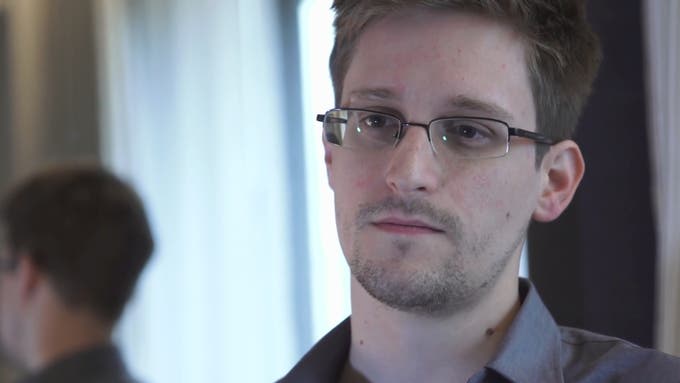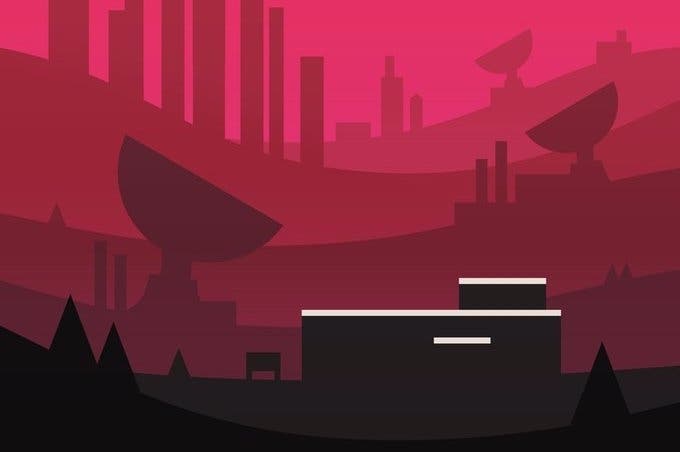Where in the world is Edward Snowden?
The game that puts you in search of history's most notorious whistleblower.
Was Edward Snowden morally justified in leaking secret documents that revealed, with the help of phone and internet companies, the British and US governments had spied on its citizens without their knowledge or consent? It is a question yet to be legally resolved. Snowden remains holed up in an undisclosed location in Russia, the country to which he fled in 2013. He refuses to return to the US where he is wanted on three charges (two counts of espionage, and one of theft of government property). While thumb-twiddles under assumed names in bleak hotels, the world continues to reel in the aftershocks of his revelations. Was Snowden justified in his actions? Come to think of it: would you have helped him?
It's a question with which James Long, a British graduate in theoretical physics, thinks everybody should be reckoning. His forthcoming game, Top Secret, casts you as an employee of the NSA at the precise moment at which Snowden began to leak government documents. You are tasked with following the intelligence all the way to the source, finding out who knows what and, most pressingly, deciding whether to help or hinder the whistleblower. The game blurs the line between fiction and documentary. While some of your surveillance targets are made-up, many are living journalists such as Glenn Greenwald, Barton Gellman and Laura Poitras, all of who were involved in the scandal.
Like 2015's sudden hit, Her Story, a game that asks its player to piece together the narrative from a thousand scattered fragments, Top Secret is a disjointed, non-linear journey that is unique to each individual. Unlike Her Story, which simulated an anachronistic PC desktop to frame the game, Top Secret is played out entirely in your actual email programme. To begin playing, you simply send an email to another member of your NSA team, perhaps listing the name, email address and phone number of a suspect whose files you wish to check. When the reply arrives in your inbox, you analyse the intelligence and, from the clues therein, choose your next target.

The surveillance reports you receive are composed of emails, phone calls, browsing history, and communications 'metadata'. This reveals with whom the target has been communicating, providing you with new avenues of investigation. Some of the genuine correspondence between Snowden and journalists is used in the game "For example," Long says, "I have permission from Edward Snowden to use communications between himself and Laura Poitras in the game. These are some of the first emails sent by Snowden when leaking the documents."
The game's system is simple to use but internally sophisticated. It matches keywords in the emails that you send in order to determine the response you receive. For example, you might receive an open question such as "Who should we target next?" The system will be able to interpret both the response "Let's target james@playtopsecret.com" and "Zoe Smith is suspicious, let's focus on her", allowing the player to investigate in a non-linear way. There is one restriction: the game plays out over a set two-week period. Besides this, there's no software to install and there are no complicated controls to master. The game threads seamlessly into your daily digital routine, and adapts to your choices.
While at University, Long was BAFTA nominated in the 'Ones to Watch' category. He was a winner of the international student games competition 'Dare to be Digital' although the title in question, an iPad game in which players must guide an anthropomorphic blob through a jungle, had nothing in common with Top Secret. After three years working at a small development studio, Long went independent in 2014, offering him the chance to work on the kinds of politically charged games he's interested in. "Human rights, democracy, and freedom from oppression have always held my interest," he says. A video game seemed like an ideal fit as a means to explore the Snowden story. "The ideas and issues raised by the leaks are abstract," he says. "Games offer a great medium for exploring a topic that's otherwise difficult for people to get their heads around."
Email, Long says, is the perfect delivery mechanism for the subject matter. "Every email you send and receive while playing the game can be intercepted by the real government," he says. "So we have a game about surveillance in which your play itself is subject to surveillance." To prevent this, Top Secret supports the encryption method that is used by Edward Snowden: Pretty Good Privacy, usually abbreviated to 'PGP'. "Players can, at times, send and receive encrypted emails from the game which even the NSA can't read. One interesting effect of mass surveillance is that people start to self-censor. I want to see if people will play differently depending on whether or not their play can be subject to government surveillance."
Unlike in the Choose Your Own Adventure series of books, which allows readers to skip to different pages in order to check whether or not their choices will save or imperil the character, Top Secret prohibits the player from 'checking' the consequences of their choices by merit of its medium. "Email latency doesn't allow you to quickly experiment with different replies so the aim is to make the reply options transparent and clear to the player," says Long. The email responses you receive in the game are sent in real-time. In other words, messages are not sent to the player immediately but are instead arrive over a period of hours, days, and even weeks.
Long has clear personal views on Top Secret's charged subject matter. "I can't pretend to be neutral in the debate," he says. "I'm nakedly partisan and a huge fan of Snowden. I believe the government has gone too far with mass surveillance." That said, he hopes to allow players to explore the issue and draw their own conclusions. "I want to present opposing arguments in the game," he says. "One of the reasons you play as an NSA analyst is that it allows the game to present the viewpoints of those in the security services. You are free to make up their own mind and decide how far you'll go when invading the lives of others. For change to happen you have to start a debate. It doesn't matter if people disagree with you as long as they are talking about the issue."
Privacy remains one of the most pressing issues of our time. Some argue that governments compromise our civil liberties when they are free to collect and interrogate records of every phonecall we make and text we receive. Others say that the people who carried out the recent terrorist attacks in Paris wouldn't have been caught so quickly had the police been unable to examine phone and email records. Many more could have died.
"Surveillance and privacy issues aren't going away," Long says. "The government is currently trying to push through draconian new surveillance powers via the Investigatory Powers. I want people to be informed and challenge the government over whether we need these powers. I want people to emailing their MPs, use encryptio and choose companies and services that protect their privacy."
If Long seems zealous it is because, through working on the game, he seen the "chilling effects," as he puts it, of the surveillance state. "People I meet jokingly suggest I must be on a watch-list," he says. "Others joke that they won't play the game because they'll be added to one." This is humour tinged with doubt, Long says. "We like to believe that our behaviour isn't affected, but our self-censorship is inescapable and manifest."


